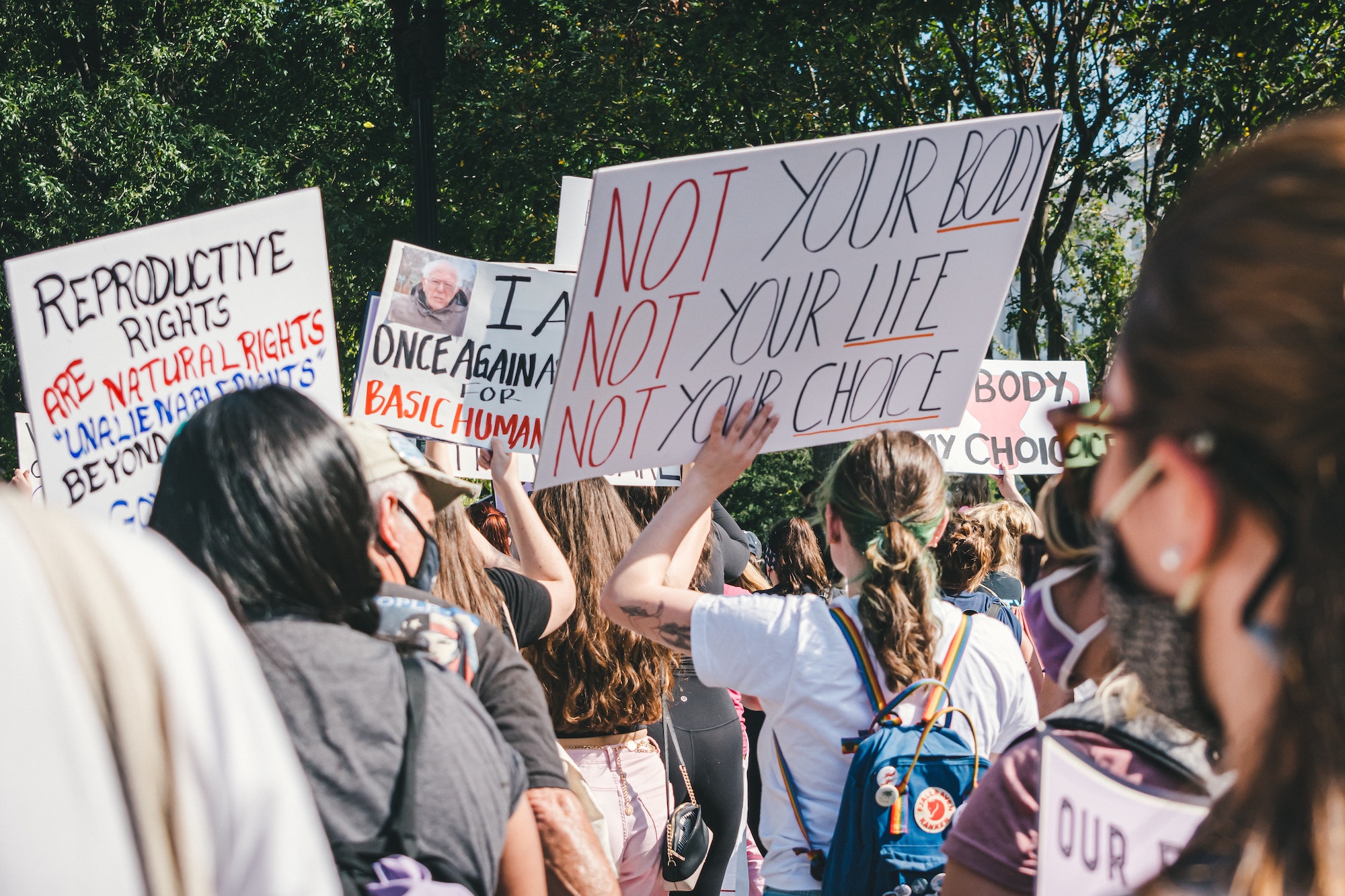The overturning of Roe v Wade is not an isolated incident – Europe must not be complacent
The far-right is organising across Europe and the US, utilising existential threats to white Christian values, anti-immigration rhetoric and pronatalist policies to repeal reproductive rights.

Many of us watched in horror last week as the US Supreme Court officially overturned Roe v Wade – the landmark case which ruled that the US Constitution protects a woman’s right to choose to have an abortion. In the coming months as we watch the situation unfold, it may be tempting to dismiss the case of our American neighbours as an extreme. This would be a mistake.
Across Europe, for the past 60 years populations have been declining and will continue to until at least 2050. In response to declining birth rates, the NGO Population Matters has observed a rise in pronatalist policies being proposed and implemented in countries including France, Germany, Hungary, Poland and Spain. France came dangerously close to electing far-right Marine Le Pen as president this past April, whose policy plans included introducing grants for families electing to have a third child. Italy and Greece have also introduced a ‘baby bonus’ in recent years to address declining birth rates.
Hungary’s Prime Minister Viktor Orbán is going further. As of 2019, 5% of the country’s GDP was being spent on policies encouraging families to have more children – from funding nationalised IVF clinics offering unlimited free treatment cycles to heterosexual women, to providing young married couples with loans of up to £25,400 (10 million forint) on the promise that once their third child is born repayments can stop. In parallel, medical abortions are illegal in Hungary, and women must obtain a prescription via a doctor’s appointment to access emergency contraception.
Pronatalist policies are not inherently oppressive. In fact, they can be a positive way for governments to offer financial support for young families that want to have children. Yet, the framing of these policies as supporting “traditional families” demonstrate their place within a conservative nationalist political agenda that is anti-women, anti-LGBTQ+ people and rooted in racism and xenophobia – an agenda that is on the rise across Europe.
Right-wing politicians in Europe and Republicans in the US alike regularly stoke the ‘Great Replacement’ theory, a conspiracy that argues white Christian populations in the West are under threat by the higher birth rates and migration of other minority groups. Back in May 2022, when addressing the US-based Conservative Political Action Conference (CPAC) in Budapest – self-described as “the largest and most influential gathering of conservatives in the world” – Orbán asserted that Europe is “committing suicide” through immigration. The solution offered by CPAC’s chief, American Conservative Union Chairman and Fox News commentator Matt Schapp, is a ban on abortion.
In Spain, the far-right party Vox (whose president also attended the CPAC in Budapest) ran in the 2019 general election on a platform an anti-feminist, anti-LGBTQ+, anti-abortion and anti-immigration platform. Though they had limited success nationally, the party has since entered a regional government for the first time in Castilla y Leon. The party’s popularity continues to grow as support for the more mainstream conservative Popular Party wanes.
In Poland, abortion has been illegal in almost all circumstances since 2021. The tragic impact of this ban is illustrated in the case of Izabela Sajbor, a 30-year-old woman who was told that the baby she was carrying would likely die before being born due to a rare genetic disorder. Doctors in Poland refused to perform a pre-emptive abortion, even when Izabela’s waters broke at 22 weeks. Although her life was in danger, doctors waited until the fetus’ heart stopped beating to attempt to operate on her. By this time, it was too late for Izabela, who went into cardiac arrest and died shortly after the fetus. Though abortion is permitted in circumstance that put the mother’s life in danger, according to Antonina Lewandowska of the Federation for Women, Family and Planning in Poland, “the Polish pronatalist movement drove doctors into such a state of fear that they would rather let a patient go into septic shock than terminate the pregnancy earlier and save her life.”
Abortion access is due to come under renewed restriction in England this August too. The public health minister has scrapped the ‘pills by post’ scheme introduced during the pandemic to assist women seeking early-term abortions to access care from home in a decision described as “a betrayal of women” and “without evidence or justice” by the British Pregnancy Advisory Service.
When compared with the situation in the US, Hungary or Poland, this may seem like little more than a minor inconvenience. But rarely are our fundamental rights so rapidly and drastically stripped as was the case with the overturning of Roe v Wade. More often, it starts with smaller actions and decisions that, little by little, make accessing essential reproductive health services like abortion more difficult. It is clear that the conservative Christian right is organising across borders in the West to fuel racist conspiracies, stoke exclusive nationalism and repeal the rights that many women in western countries have come to take for granted. We therefore must remain vigilant in the face of this global threat to reproductive rights.
Freya Paulucci Couldrick is Communications and Marketing Assistant at the School.
